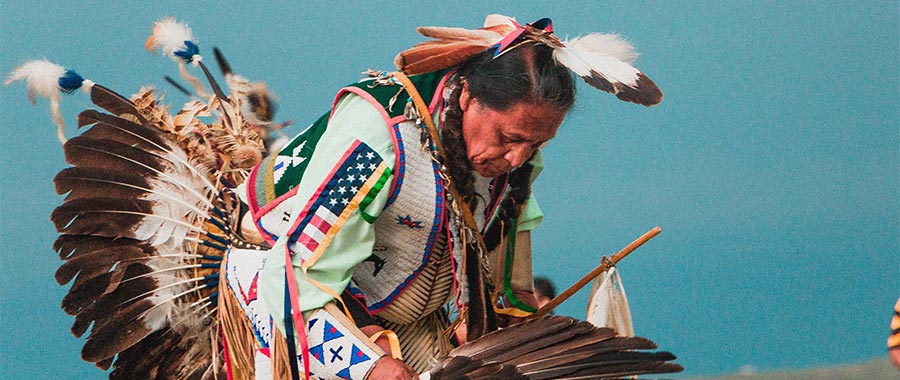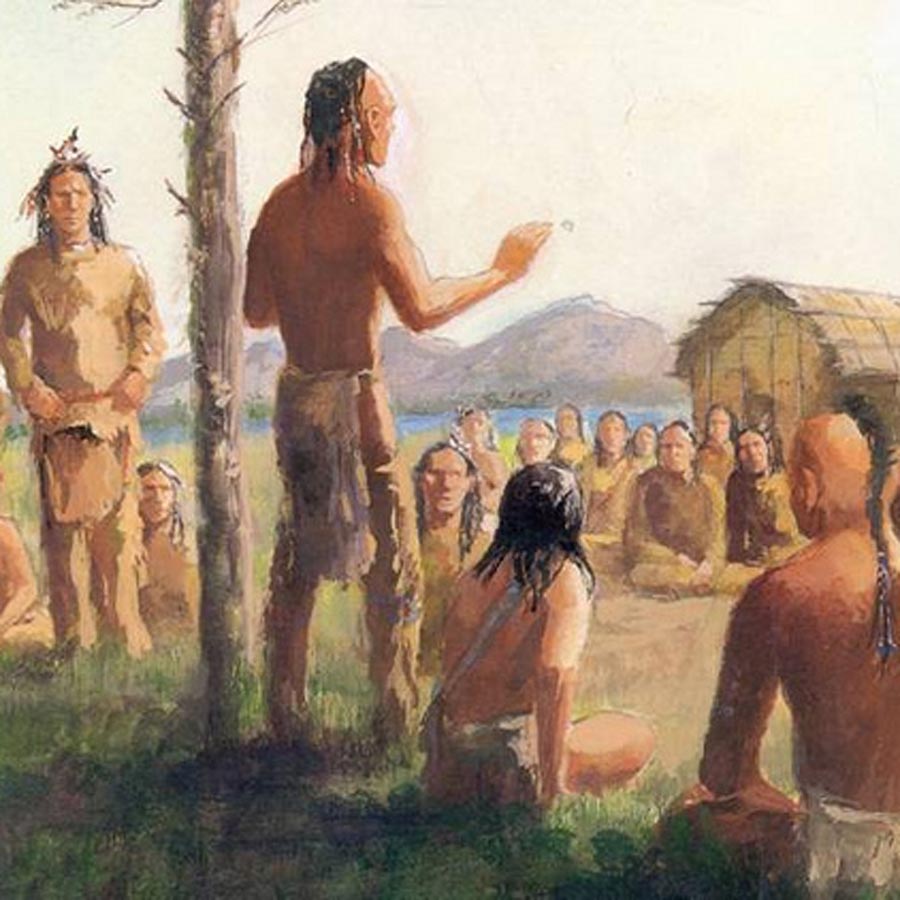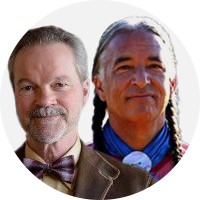The views expressed in our content reflect individual perspectives and do not represent the authoritative views of the Baha'i Faith.
Welcome back to the ongoing conversation about indigenous prophets and Messengers of God between Baha’i authors Christopher Buck and Lakota artist Kevin Locke.
Q: Would it be a good thing, Kevin, in your view, if Lakota and Haudenosaunee people were to investigate the teachings of Baha’u’llah? Would doing so add or subtract—enrich or detract—from their own sacred traditions?
A: I just co-wrote an entire book on this subject, Chris, called Arising. It’s the story of my own quest for meaning as a young Lakota man, and it tells how I first encountered the Baha’i Faith—and how its spiritual principles fit so perfectly with Lakota beliefs. The Guardian of the Baha’i Faith, Shoghi Effendi, explained how Baha’u’llah came to connect and unite all of the spiritual traditions and enable us to discover the true nature and reality of all the previous Messengers:
The Revelation, of which Baha’u’llah is the source and center, abrogates none of the religions that have preceded it, nor does it attempt, in the slightest degree, to distort their features or to belittle their value. It disclaims any intention of dwarfing any of the Prophets of the past, or of whittling down the eternal verity of their teachings. It can, in no wise, conflict with the spirit that animates their claims, nor does it seek to undermine the basis of any man’s allegiance to their cause. Its declared, its primary purpose is to enable every adherent of these Faiths to obtain a fuller understanding of the religion with which he stands identified, and to acquire a clearer apprehension of its purpose. It is neither eclectic in the presentation of its truths, nor arrogant in the affirmation of its claims. Its teachings revolve around the fundamental principle that religious truth is not absolute but relative, that Divine Revelation is progressive, not final. Unequivocally and without the least reservation it [the Baha’i Faith] proclaims all established religions to be divine in origin, identical in their aims, complementary in their functions, continuous in their purpose, indispensable in their value to mankind. – Shoghi Effendi, The World Order of Baha’u’llah, pp. 57–58.
Q: Excellent answer! In this remarkable passage, let me illustrate how this statement may apply to the Lakota and Haudenosaunee sacred traditions, as being among “all established religions.” So, if we substitute “the Lakota and Haudenosaunee sacred traditions” in place of “all established religions,” we get this result:
Unequivocally and without the least reservation it [the Baha’i Faith] proclaims [the Lakota and Haudenosaunee sacred traditions] to be divine in origin, identical in their aims, complementary in their functions, continuous in their purpose, indispensable in their value to mankind.
Suppose I were to ask the very same question—but the other way around: Would it be a good thing if Baha’is—and our other interested readers—were to investigate the teachings of White Buffalo Calf Woman and Deganawida, the Peacemaker?
A: Yes. That said, Chris, White Buffalo Calf Woman and Deganawida, the Peacemaker, are simply representative of the myriad Messengers who have appeared in this half of the world.
Q: Now I have a question regarding what Chelsea Horton has called the “sole racial prophecy” in the Baha’i Faith:
Attach great importance to the indigenous population of America. … Likewise, these Indians, should they be educated and guided, there can be no doubt that they will become so illumined as to enlighten the whole world. – Abdu’l-Baha, Tablets of the Divine Plan, p. 32.
Kevin, according to your understanding of this remarkable Baha’i prophecy, will the indigenous population of America “enlighten the whole world” purely by virtue of becoming Baha’is and being enlightened by the Baha’i teachings? Or will there be a synergy between the indigenous spiritual heritages and the Baha’i teachings—once they connect, interact, and intermix—such that there will be a powerful new perspective that will be offered to the world at large? Is this “light upon light”? Or a compound enlightenment, as it were?
A: My understanding is that this is a “conditional prophecy” based on the quality of response to the Divine Summons from Baha’u’llah. In order to fulfill it, spiritual champions must arise, much as so wonderfully described by Chief John Arthur Gibson in “Concerning the League.”
Q: In your view, Kevin, why should Baha’is—and our other interested readers—respect sacred indigenous traditions, such as the Lakota and Haudenosaunee spiritual heritages, and recognize White Buffalo Calf Woman or Deganawida, the Peacemaker, as Messengers of God?
A: If Baha’is and others recognize White Buffalo Calf Woman or Tekanawita [Deganawida, the Peacemaker] as Messengers of God, then doing so affirms the “three onenesses” the Baha’i Faith teaches—the oneness of God, the oneness of all religions, and the oneness of humankind. That enriches our sense of sacred history—it would be an unthinkable breach of respect and protocol to do otherwise!
Q: Do you agree that there needs to be “parity” and reciprocal recognition and respect, as between Baha’is and the peoples of the Lakota and Haudenosaunee spiritual heritages?
A: Yes.
Q: What can Baha’is contribute to the advancement of the Lakota and Haudenosaunee peoples, if invited to do so? What do the Baha’i’s potentially have to offer?
A: It seems that the Baha’i community is finally at the stage where human resources are being developed that will be able to effectively carry the Baha’i study circles—known to Baha’is as the institute process—to Indigenous communities, both rural and urban. When that occurs, along with devotional gatherings, children’s classes, junior youth empowerment groups, community service projects and social action, as well as dialogue and public discourses on important social issues, it will have a significant impact.

















Comments
Sign in or create an account
Continue with Googleor